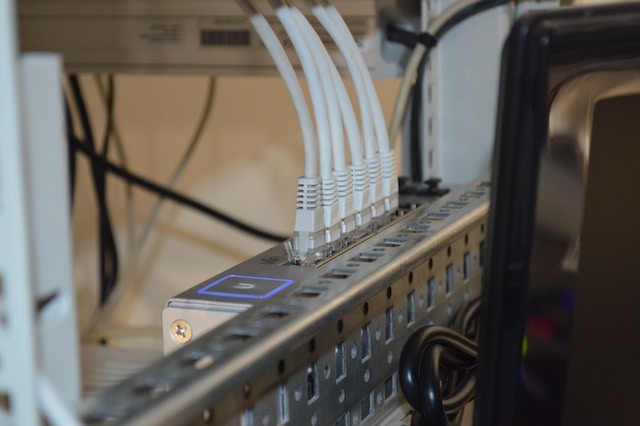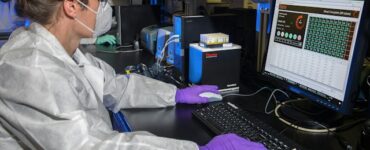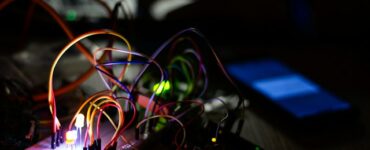The Internet of Things (IoT) has become an integral part of our modern lives revolutionizing the way we interact with technology and transforming various industries. From smart homes and wearable devices to industrial automation and smart cities IoT has paved the way for a connected and intelligent world. In this article we will explore the profound impact of IoT on our lives and the implications it holds for the future.
IoT in Everyday Life
IoT has seamlessly integrated itself into our daily routines making our lives more convenient efficient and secure. Smart home devices such as voice-activated assistants connected thermostats and intelligent security systems allow us to control and monitor our living spaces with ease. Wearable devices such as fitness trackers and smartwatches enable us to track our health and stay connected on the go. IoT-powered appliances and gadgets like smart refrigerators and home automation systems simplify our tasks and enhance energy efficiency. Through IoT our homes have become smarter safer and more connected than ever before.
IoT in Healthcare
In the healthcare industry IoT has opened up a realm of possibilities for improved patient care remote monitoring and enhanced diagnostics. Connected medical devices and wearables can collect and transmit real-time health data enabling healthcare professionals to monitor patients remotely and detect early warning signs. IoT-based systems can automate medication reminders and provide personalized treatment plans. Furthermore IoT-enabled healthcare facilities can track and manage medical equipment ensuring efficient usage and maintenance. By leveraging IoT healthcare providers can offer more personalized efficient and accessible care to patients.
IoT in Manufacturing and Industry
IoT has also revolutionized the manufacturing and industrial sectors giving rise to the concept of “smart factories” and industrial automation. Connected sensors and devices embedded in machinery can collect and analyze data optimizing production processes and predicting maintenance needs. This leads to increased efficiency reduced downtime and cost savings. IoT-powered supply chain management systems ensure real-time tracking of goods inventory optimization and seamless communication between suppliers manufacturers and distributors. The integration of IoT in manufacturing and industry has transformed traditional practices resulting in improved productivity sustainability and competitiveness.
IoT in Transportation and Logistics
The transportation and logistics sector has greatly benefited from the integration of IoT technologies. Connected vehicles equipped with sensors and GPS trackers enable fleet managers to monitor fuel consumption track routes and optimize logistics operations. IoT-powered smart traffic management systems help reduce congestion enhance road safety and improve traffic flow. In the realm of logistics IoT enables real-time package tracking automated inventory management and efficient supply chain optimization. By harnessing IoT capabilities the transportation and logistics industry can achieve enhanced efficiency reduced costs and improved customer satisfaction.
IoT in Smart Cities
IoT plays a pivotal role in the development of smart cities where interconnected devices and systems collaborate to enhance the quality of urban life. Smart grids equipped with IoT sensors enable efficient energy distribution consumption monitoring and automated billing. Intelligent waste management systems use connected sensors to optimize waste collection routes and reduce environmental impact. IoT-powered public transportation systems provide real-time information to commuters improving travel efficiency. Moreover smart city applications encompass various areas including public safety environmental monitoring and infrastructure management to create sustainable and livable urban environments.
IoT Security and Privacy Considerations
As IoT continues to expand ensuring security and privacy becomes a critical concern. The vast network of interconnected devices creates vulnerabilities that can be exploited by cybercriminals. Strong encryption secure authentication mechanisms and regular software updates are essential to safeguard IoT ecosystems. Privacy regulations and data protection measures must be enforced to protect individuals’ personal information collected by IoT devices. Striking the right balance between innovation and security is crucial to fully unlock the potential of IoT while preserving the trust and privacy of users.
The Future of IoT
The potential of IoT is vast and its impact will continue to grow in the coming years. As more devices become connected and the capabilities of AI and machine learning expand IoT will drive innovation in areas such as healthcare agriculture energy and more. The emergence of 5G networks will further accelerate IoT adoption enabling faster data transfer lower latency and improved connectivity. However challenges related to interoperability standardization and ethical considerations need to be addressed for IoT to reach its full potential.
In conclusion the Internet of Things (IoT) has revolutionized the way we interact with technology and holds immense potential for various industries. From improving our daily lives to transforming healthcare manufacturing transportation and urban living IoT has become a driving force of innovation. However ensuring security privacy and addressing ethical considerations are crucial as IoT continues to evolve. With continued advancements and collaboration IoT has the power to shape a more connected efficient and sustainable future.

Hi, I’m Jodie! I’m a spain-Moroccan writer with a passion for imagination, adventures, magic and stories with heart.
Please don’t hesitate to contact me for any questions, suggestions, comments or feedback.

















Add comment